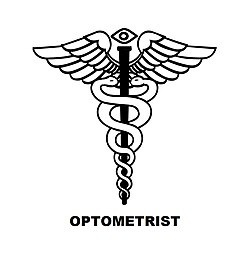An eye exam consists of not just checking to see if you need glasses. During a thorough eye exam, we not only determine your prescription for contacts or glasses, we assess your eyes’ capability to work together together (binocular vision). The dilated part of the comprehensive eye exam allows us to check for eye diseases such as glaucoma, cataract, and macular degeneration; and helps us evaluate your vision for signs of systemic disease for example diabetes, high blood pressure levels, even brain tumors. Adults and kids must have routine eye exams to help keep prescriptions current and to search for early indications of eye diseases. Irvine Optometry can prevent vision loss.
Here’s a listing of a couple of eye conditions and eye diseases that individuals try to find within a comprehensive eye exam:
Refractive error: This is your eyes’ “optical” prescription. You can find 3 types of refractive error, myopia (nearsightedness), hyperopia (farsightedness), and astigmatism (irregular fit around a person’s eye which results in two separate things). These conditions could be corrected with glasses, lenses, and refractive surgery.
Presbyopia: This is actually the eyes inability to focus close up. This occurs due to growing older. This disorder could be corrected with glasses, contacts, and refractive surgery.
Amblyopia: Amblyopia is poor development of central vision because of a turned eye or even a large asymmetry (difference) in refractive error between the two eyes. If untreated, amblyopia can slow visual progression of the affected eye, which can lead to permanent vision loss.

Strabismus: Strabismus is surely an eye that turns inwards or outwards relative to one other eye. If left untreated, a strabismus can result in amblyopia, and decrease depth perception.
Glaucoma: Glaucoma will be the degeneration of the optic nerve (a nerve tract that connects and transmits information from your eye for the brain) often connected with high eye pressures. Throughout a comprehensive eye exam, we perform numerous tests that reveal whether you’ve got glaucoma. Because there are hardly any symptoms, you will need to have regular eye exams to avoid permanent vision loss.
Macular degeneration: Macular Degeneration is a disease that affects the little “sweet spot” (macula) from the retina critical for acute central vision tasks such as reading, driving, and watching tv. A comprehensive examination can detect the problem continuing.
Cataracts: A cataract is a clouding from the crystalline lens which rests just behind the colored area of the eye. Once cataracts develop patients often feel as if they may be browsing a dirty window pane, which can cause signs of glare at night.
Systemic diseases: An extensive eye exam can detect early indications of many systemic diseases including diabetes and high blood pressure levels.
For more info about Concourse Optometry web portal: click now.
